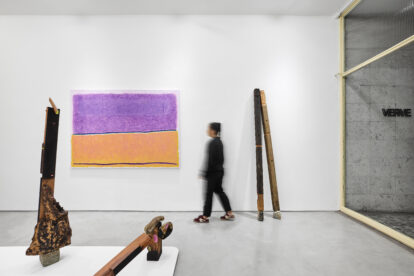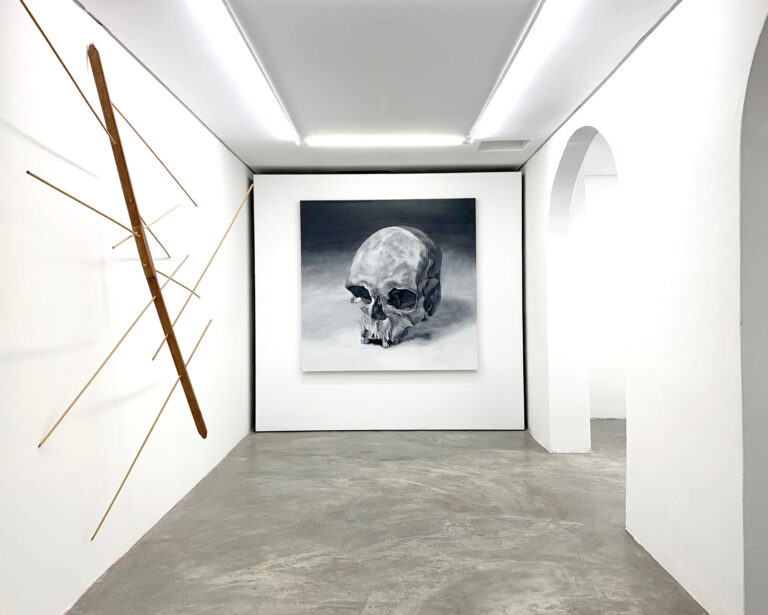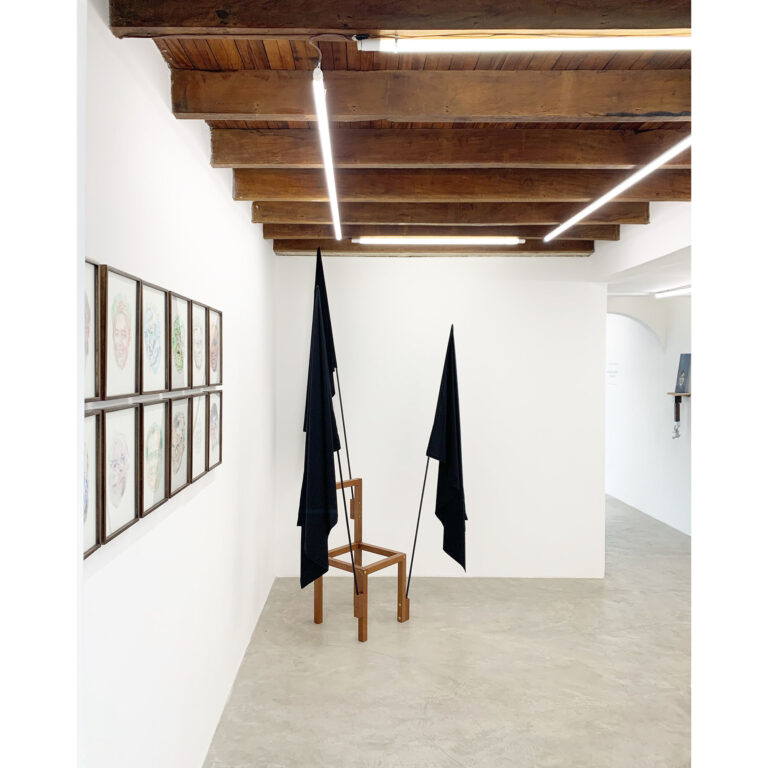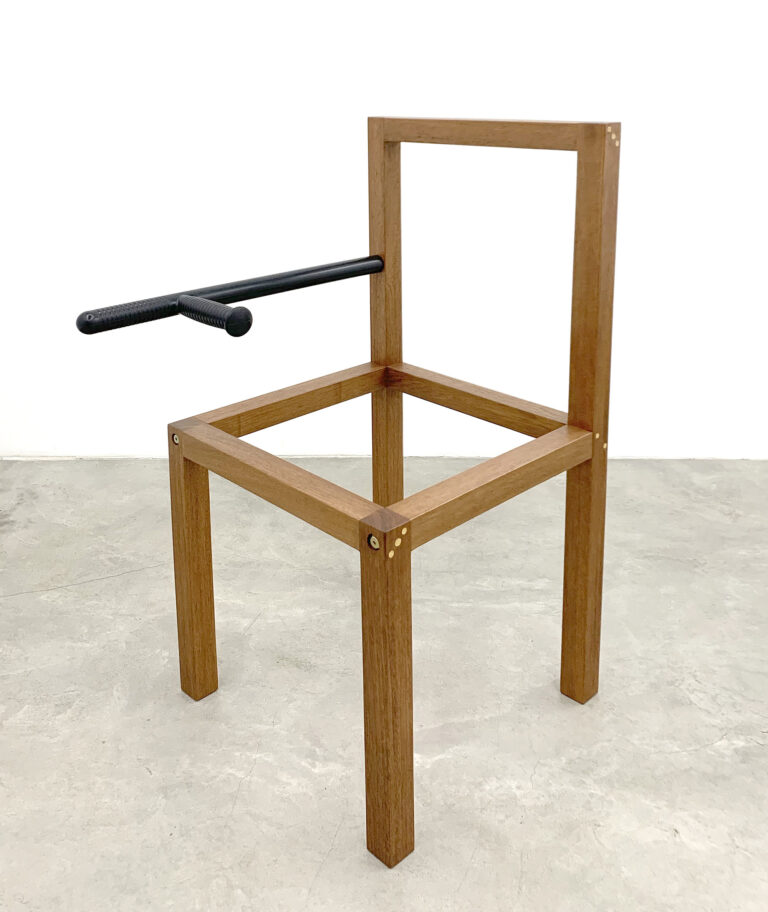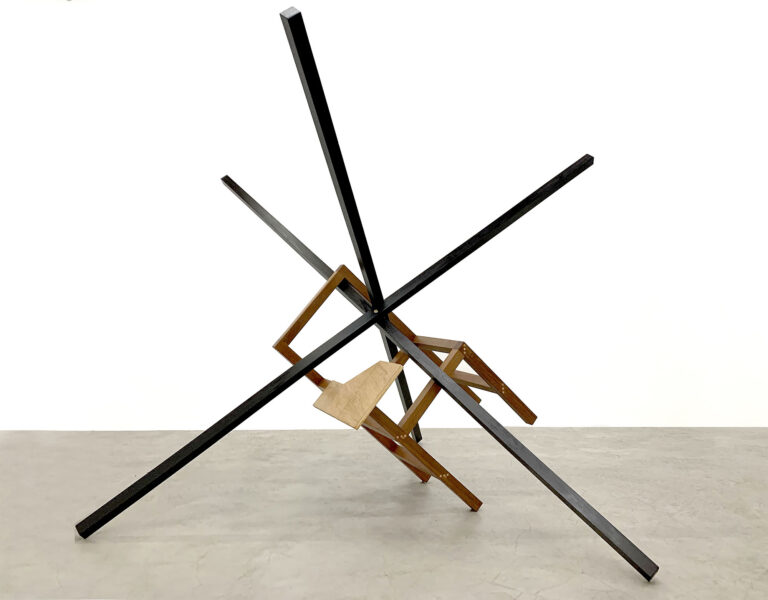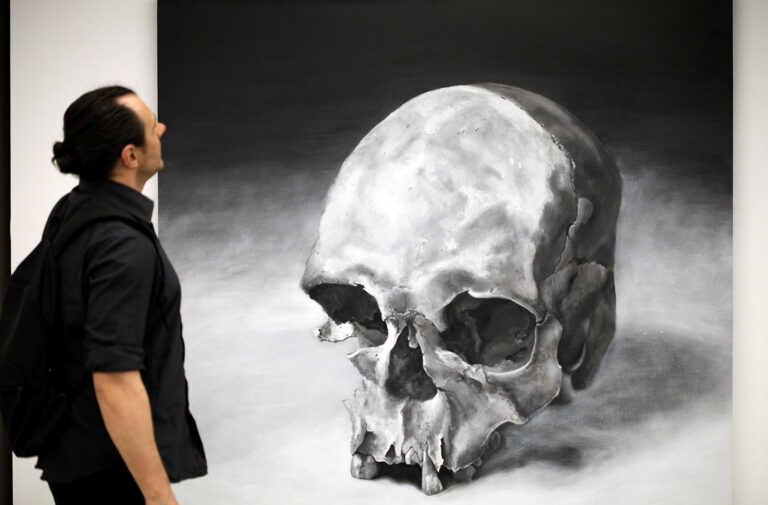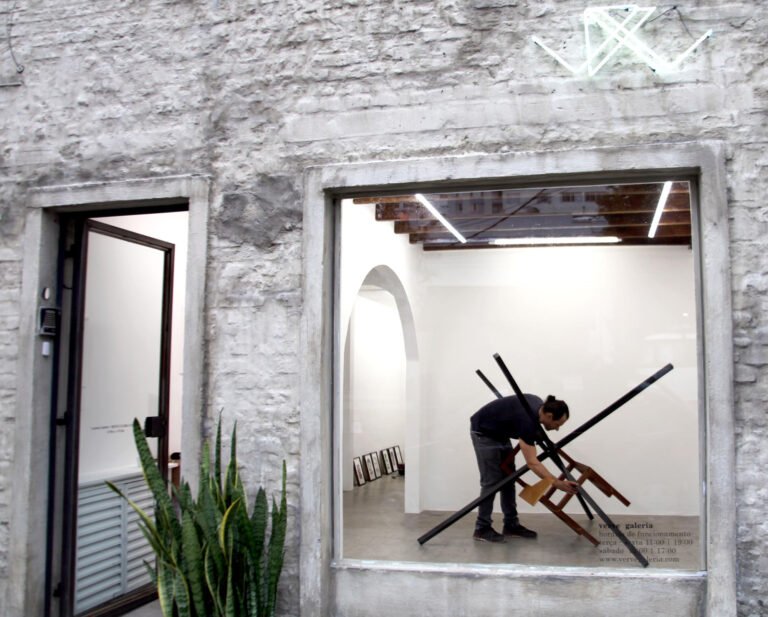Necrocolony 2016-2019 [Nocrocolônia 2016-2019]
It didn’t take long for a dark portrait of the politics of our time to appear in art. The exhibition “Necrocolônia 2016-2019” (Necrocolônia 2016-2019), by Luciano Zanette, is a very instigating example of this task, undertaken by today’s art, of elaborating the bitter setback of humanist thought of which we are all witnesses.
The series of portraits “On Positions”, 2019, mixes famous figures from the Brazilian political scene: parliamentarians, judges, former presidents of assemblies, commissions, collegiate and also from the country… (a year that also marks a political shift in Zanette’s production). Temer, Gilmar Mendes, Moro, Bolsonaro, Rodrigo Maia and so many other characters that we recognize the features but forget the name, which we have seen on TV or in newspaper articles but we can no longer remember what barbarity or debacle they are associated with. . A group mostly composed of white men with a long, albeit unremarkable, political trajectory. Oblivion, by the way, is the stuff Zanette’s drawings are made of. Specifically, they are executed with overlapping strokes, shaded areas and watercolor effects, techniques that collaborate for a fusion or dissolution of the figures. In a deeper layer, they are portraits that do not individualize, whose image of the portrayed is always on the verge of being formed, but does not get to differentiate itself completely and always escapes us. Placed side by side, they form a pantheon of ghosts. And it is with this dark image of the political scene that Zanette leaves us to think about what Achille Mbembe called “Necropolitics”. In this essay, the Cameroonian philosopher says:
“The assertion of a supreme authority in a given political space is not easy. Instead, a mosaic of incomplete and overlapping rights to govern, disguised and entangled, emerges, in which different, de facto, geographically intertwined legal instances abound, and in which plural allegiances, asymmetrical suzerainties and enclaves abound.” (p. 139)1.
The exhibition “Necrocolônia 2016-2019”, walking along with Mbembe’s essay, evokes the colonial power structure to emphasize the relationship of extreme violence that governs all areas of contemporary life. While the philosopher states that: “the colonies are the place par excellence where the controls and guarantees of judicial order can be suspended – the zone in which the violence of the state of exception supposedly operates in the service of ‘civilization’” (p. 133). ), Zanette shows how violence is present in Brazilian daily life in the 21st century.
As an artist-teacher, his reflection turns to the field of education. The work “School ‘civic-military’ in imposition”, from the series “A Nova Escola Neoliberal Empresarial Colonial Media Jurídica Militar”, shows a school desk whose writing support was replaced by a truncheon. A collage gesture that uses a formal similarity to create a strong image of what the School – as an ideological apparatus in dispute – can become. Two more works from the same series appear at the exhibition. In “Education Interdiction” a chair appears suspended, crossed by a kind of spear that lifts it off the ground. The word interdiction, present in the title of the work, together with the gesture of suspension that constitutes the work, makes us think of the dangers of a society in which the very idea of education is attacked. Also part of the “A Nova Escola…” series, there is a work made up of two structures that resemble slates and display phrases relating ignorance and education, fascism and democracy.
The work “Instrumento de Estado Thanatopolítico” that joins a truncheon to a scythe, a collage artfully resembling a logo, attests to our entry into the depths. Zanette’s new works are rooted in the present: with a direct speech, they mark an unambiguous position in relation to the current political context.
- Achille Mbembe. “Necropolitics” In: Arte Ensaio – Revista do PPGAV/EBA/UFRJ. no. 32, December 2016.
